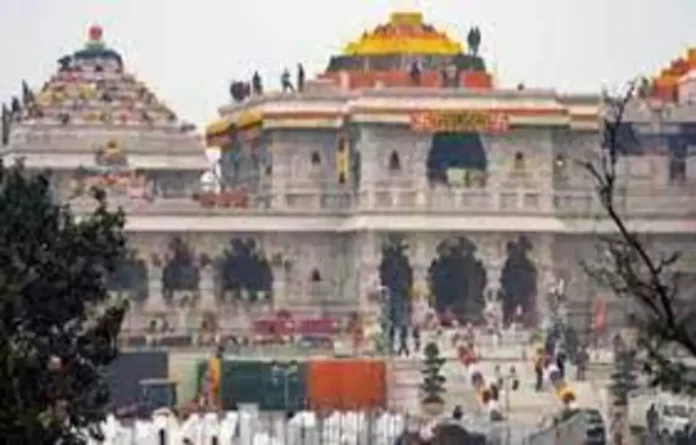The Tamil Nadu Director General of Police (DGP) told the Supreme Court on Monday that it is condemnable to portray the state government as anti-Hindu. The DGP added that chief minister MK Stalin never gave any instruction to restrict the live telecast of the Ram Mandir inauguration ceremony or performing related religious activities on January 22.
The DGP in an affidavit before the top court maintained that a total of 252 events, both indoor and outdoor, were conducted on January 22 and the permission for only 36 others were denied. The affidavit was submitted in response to a plea lodged by BJP state unit secretary Vinoj P Selvam. The affidavit mentioned that the petitioner portrayed the Tamil Nadu government as an anti-Hindu government, which is totally false and condemnable.
Asserting that the petition is politically motivated and has sought to defame the chief minister, the DGP added that the allegations that MK Stalin had orally instructed not to allow any ceremony or function including the annadhanam, organising bhajans about Prabhu Ram, on the auspicious occasion of January 22, the day of pran pratishta of Ram Janmabhoomi, are totally baseless and false.
Nonetheless, the affidavit underlined that among 288 requests received for the conduct of religious activities, only four were initially allowed, 146 applications were rejected, and 136 others were kept pending for verification. Later, after the Madras high court directed the police to regulate their conduct to ensure there was no hindrance to public movement, the police allowed 248 more events, taking the tally to 252.
On the day of Ram Mandir inauguration, both the Supreme Court and the Madras high court had stepped in following the complaints of restrictions against the live-telecast of the consecration ceremony and religious events to mark the occasion.
A top court bench of justices Sanjiv Khanna and Dipankar Datta pulled up the Tamil Nadu government for general orders reportedly issued by the state police to restrict the religious activities, calling these orders atrocious and directing the state not to summarily deny such permissions.


